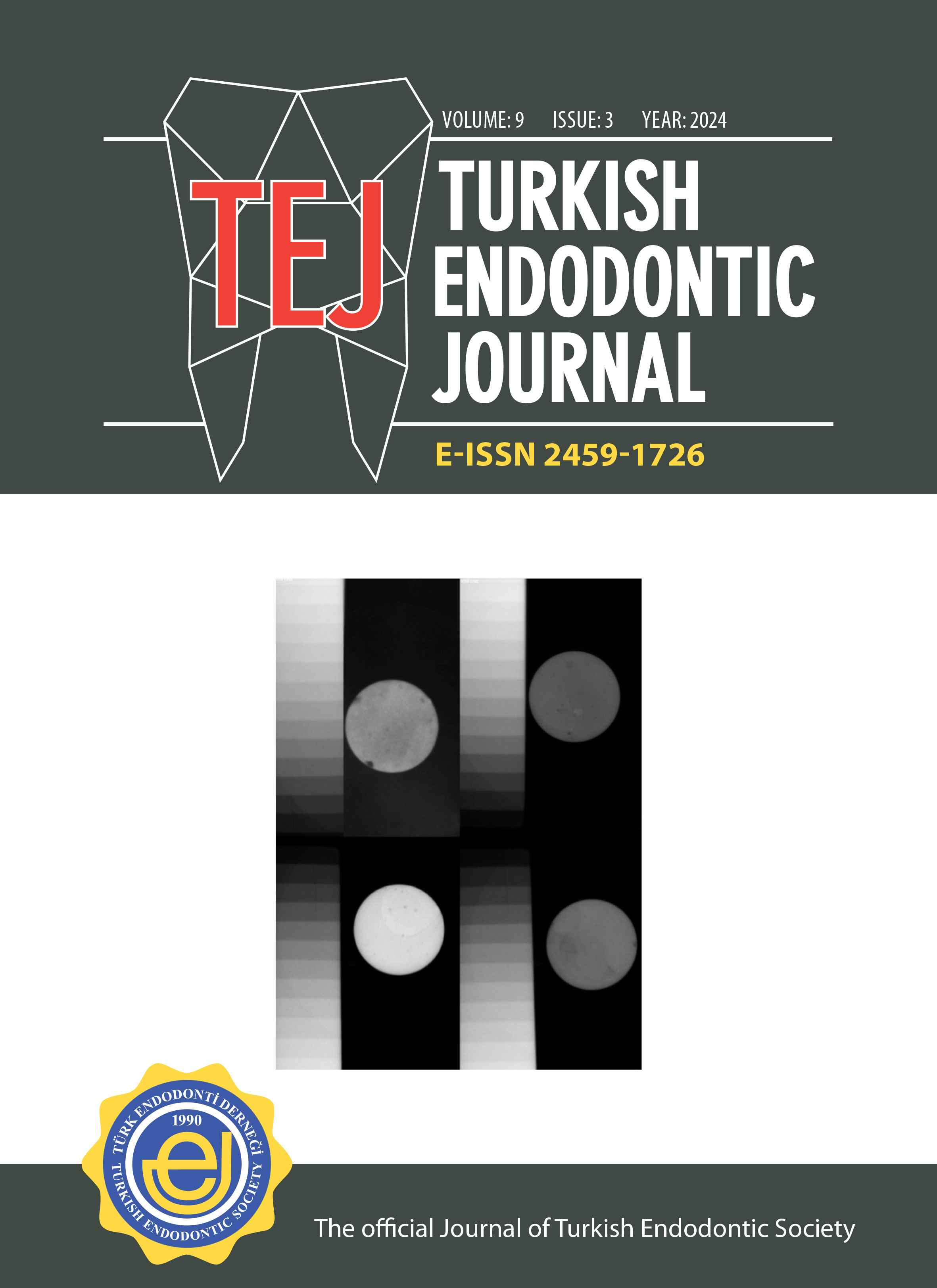The effect of storage time on dislocation resistance of core material to root canal sealer in standardized root canals: A laboratory study
Tuba Gök1, Güzide Çankaya1, Bilge Hakan Şen21Department of Endodontics, Fırat University Faculty of Dentistry, Elazığ, Türkiye2Private Practice, İzmir, Türkiye
Purpose: To evaluate the effect of storage time on the dislocation resistance of core material to root canal sealer in standardized artificial root canals.
Methods: A single root canal with a round shape was selected using cone-beam computed tomography imaging, and root canal treatment was performed. The root was scanned with microcomputed tomography, and the data were exported as a stereolithography file. Forty artificial roots were manufactured using 3D printing technology. The artificial root canals were obturated using a single cone technique. The roots were divided into two groups according to the storage time of filled roots: 7 days and 30 days (n = 20), and stored at 37°C and 100% humidity. After each storage period, 2-mm sections were taken from the middle part of the roots. The sections were tested on a universal testing machine. The dislocation resistances (MPa) were calculated, and the data were analyzed using the Shapiro–Wilk test and independent samples t-test (α =.05).
Results: The dislocation resistance of the filling material was significantly higher in the 30-day storage time group compared to the 7-day group (p <.05).
Conclusion: The storage time of the root fillings affected the dislocation resistance in the standardized experimental setup with artificial roots.
Manuscript Language: English


















